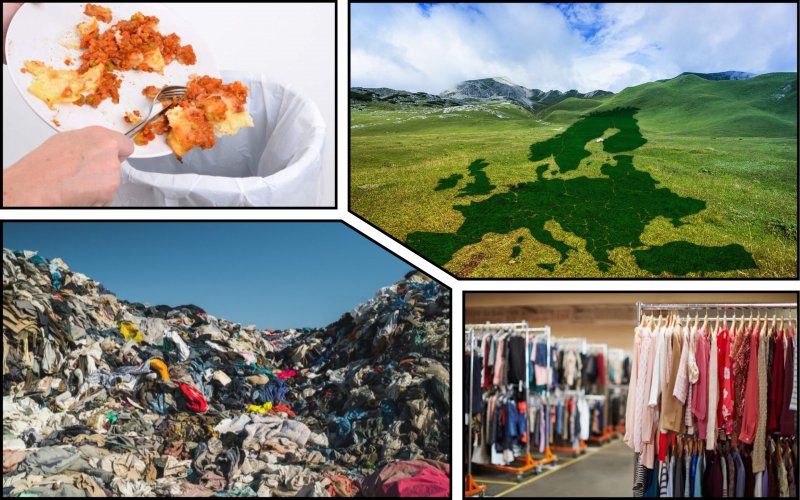The European Parliament has adopted proposals to better prevent and reduce food and textile waste in the EU, including the extension of the producer responsibility system.
MEPs agreed to extend the PRS to include manufacturers or sellers of clothing and accessories, footwear, blankets, curtains, mattresses and carpets, and other textiles, the European Parliament's press service reports.
The proposed Waste Management Concept was supported by 514 MEPs. However, the document should be considered by the new European Parliament after the June 6-9 elections.
It is noted that producers and sellers will have to cover the costs of their collection, sorting and processing. The new rules will also apply to goods containing textile materials such as leather, composite leather, rubber or plastic.
The press service explained that member states will have to implement these schemes 18 months after the directive enters into force.
The report added that the Concept also sets stricter targets for reducing food waste. Thus, by the end of 2030, the reduction of such waste should reach a certain level:
- At least 20% in the food industry and manufacturing;
- 40% per capita in retail, restaurants, catering and households.
"The Parliament has proposed targeted solutions to reduce food waste, such as promoting 'ugly' fruits and vegetables, tracking unfair market practices, clarifying date labeling, and donating unsold but edible food. As for textiles, we also want to include household goods, carpets and mattresses, as well as sales through online platforms," said MEP Anna Zalewska.
It is noted that the EU generates 60 million tons of food waste annually, i.e. 131 kg per person, and 12.6 million tons of textile waste. Clothing and footwear alone account for 5.2 million tons of waste, which is equivalent to 12 kg of waste per person annually. It is estimated that less than 1% of all textiles worldwide are recycled into new products.
Earlier, EcoPolitic wrote, that global designers and couture brands are developing eco-friendly fashion, which involves the development of "slow" fashion, decarbonization of production and waste minimization.
As EcoPolitics previously reported, China, India, Nigeria, Indonesia, and the United States are among the countries that throw away the largest amount of food, namely 236.47 million tons annually.





